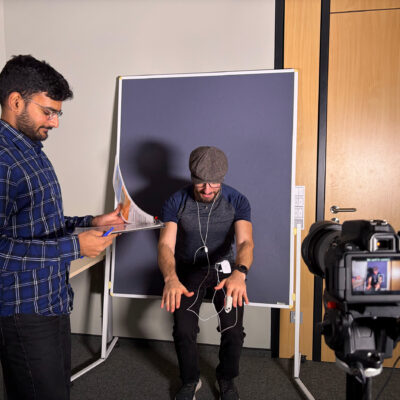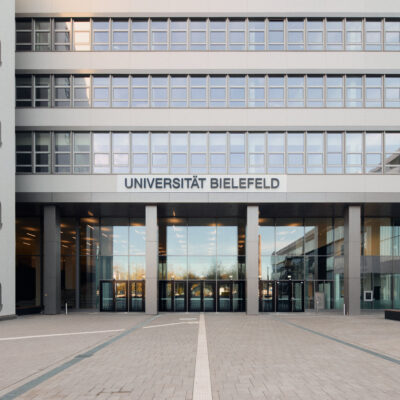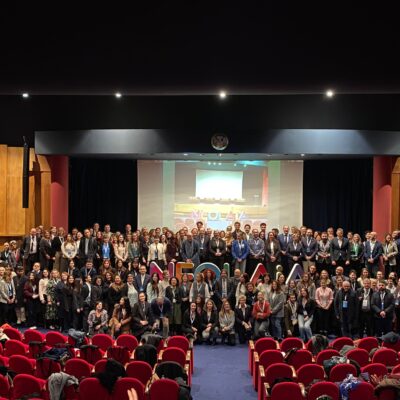What is dental care provision for refugees like? How often do they utilize services? And what can we learn from this? Public health scientists at Bielefeld University have been looking into these questions. Last autumn, the utilization of dental care of rejected asylum seekers became a subject of public debate. This study suggests that refugees receive significantly less dental care than the general population.
‘In our study, we investigated the frequency of asylum seekers’ visits to the dentist in Germany,’ says Professor Dr Kayvan Bozorgmehr. He heads the working group on Population Medicine and Health Services Research at Bielefeld University’s School of Public Health. Bozorgmehr is the lead author of a research article published today (17 January 2023) on dental services for refugees. The article is published with co-authors from Heidelberg University Hospital, the German Institute for Economic Research, and the Robert Koch Institute (RKI) in the RKI’s Journal of Health Monitoring.
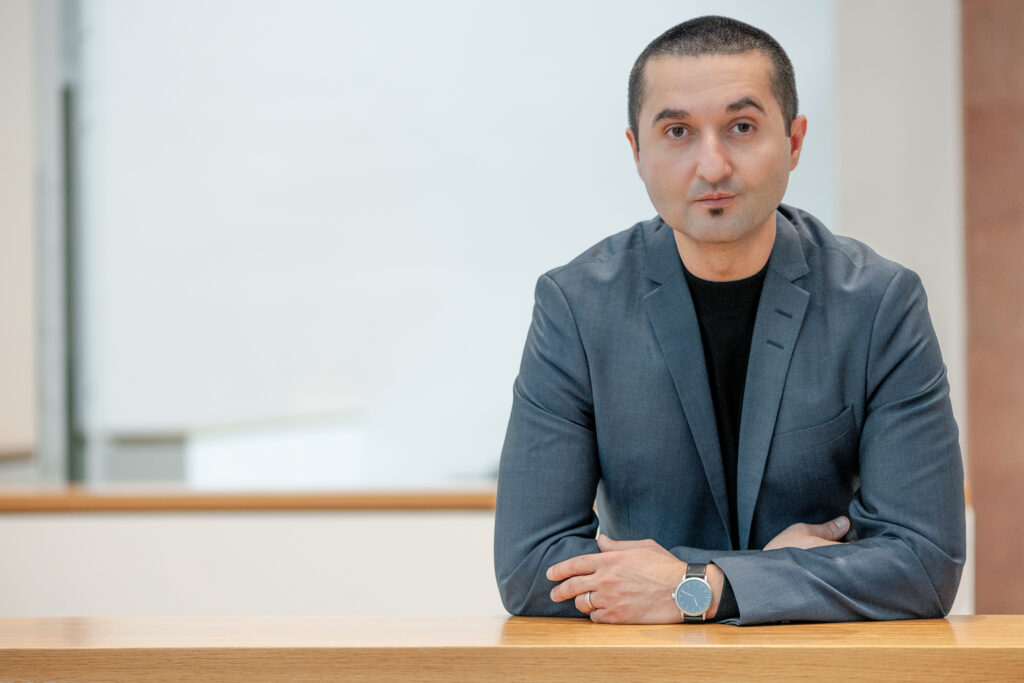
© Bielefeld University/Britta Kirst
Big difference compared to the general population
The analysed data was collected as part of the 2018 cross-sectional RESPOND study that Kayvan Bozorgmehr also managed. This survey of a random sample of 863 refugees in reception centres and collective accommodation centres in Baden-Württemberg and Berlin included questions on dental care visits. Results showed that 38.2 reported having received dental care in the past twelve months. However, ‘41.4 per cent said that they had never been to the dentist in Germany,’ says Bozorgmehr.
This is a big difference compared to the general population in Germany: in the Robert Koch Institute’s ‘German Health Update (GEDA)’, 82.2 per cent of respondents stated that they had had a dental check-up in the past twelve months.
However, these two figures are comparable only to a limited extent, because they are based on different data. This also highlights a fundamental problem: although data on dental services for refugees are recorded by the individual authorities, they are not collated. Bozorgmehr considers the collected data and the difference to be plausible. ‘International studies also indicate that refugees generally have a poor state of oral health and difficult access to dental care.’
Restricted services
What possibilities are there for refugees in Germany to go to dentists and receive treatment? This is regulated by the Asylum Seekers’ Benefits Act. The law stipulates that dental treatment may be carried out only for urgent medical reasons. During the ongoing asylum procedure, after a rejected procedure, or during a tolerated stay in the first 18 months of residence in Germany, further benefits may be granted only upon application to the competent authority and its case-by-case review.
How should we interpret the fact that refugees make significantly less use of dental services from the perspective of healthcare research? ‘There are indications that the Asylum Seekers’ Benefits Act leads to structural inequality,’ says Dr Nora Gottlieb, another author of the study and researcher in Kayvan Bozorgmehr’s working group. ‘This contradicts the principles of non-discrimination, equality, and human dignity.’ Adults in Germany are recommended to visit a dentist every six months. ‘The fact that the available studies indicate a high or higher need for care among refugees compared to the general population points to discrepancies between the need and provision of care.’
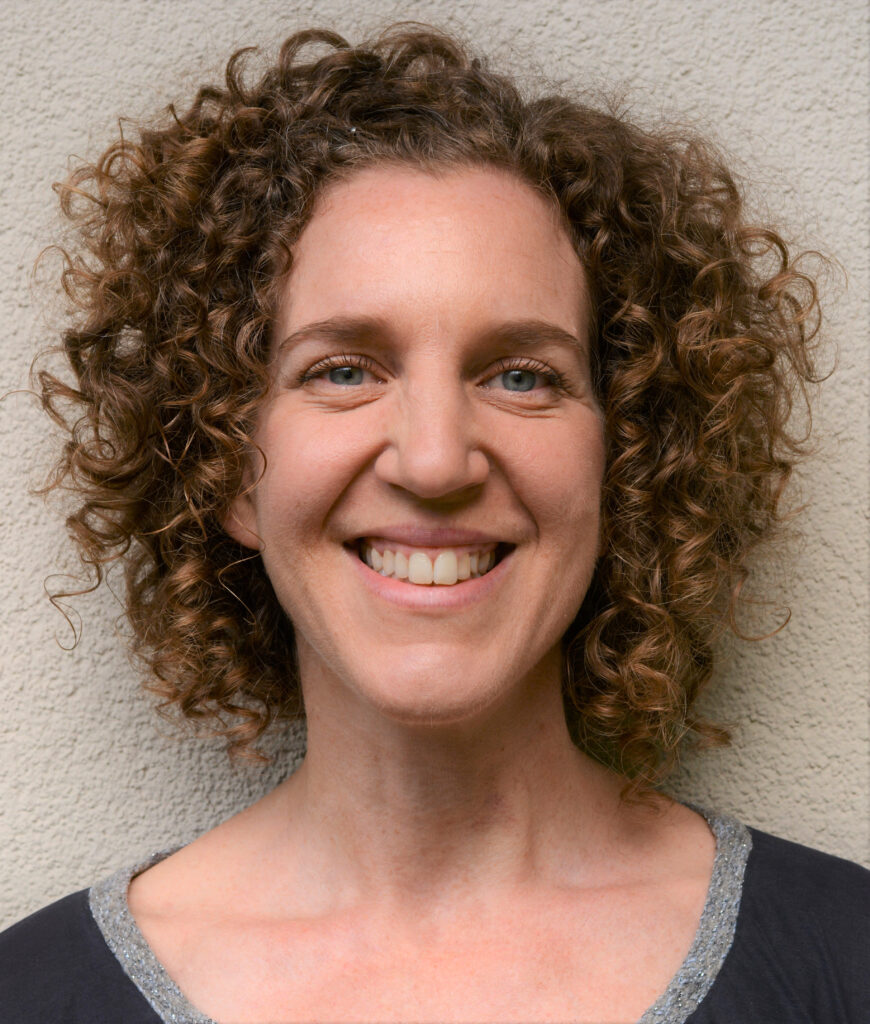
© Bielefeld University
Secondary health impacts
Overall, this results in a higher demand coupled with a lack of preventive dental care, with care being limited to painful dental problems or conditions that need immediate attention. ‘Untreated dental complaints can not only significantly reduce quality of life, but also lead to secondary diseases in other organ systems,’ says Gottlieb. There is also a further aspect: the lack of preventive care can result in higher follow-up costs for the healthcare system. ‘This raises the question whether the law’s stipulation that only urgent cases should be treated actually fulfils the objective of capping expenditure.’
In order to better answer these and other healthcare-related questions, the researchers believe that better data is needed for the care of refugees. ‘This would make it possible to better map needs and care,’ says Gottlieb. It could not only help to uncover inequalities in healthcare, but also contribute to a fact-based discussion on migration and health.
The study is part of current work in the new field of uncertainty research being carried out at Bielefeld University’s new Center for Uncertainty Studies (CeUS). Conflict researcher Professor Dr Andreas Zick, one of the directors of CeUS, says: ‘When politicians make accusations without any factual basis that refugees are abusing social benefits, they are exploiting an actual or subjectively perceived lack of knowledge in the general population. This increases uncertainty by creating a false sense of security and may well serve gaining votes as its primary goal. At the Center for Uncertainty Research, we are investigating such narratives of uncertainty and studying their social effects. These can also take the form of producing new uncertainties.’
Journal of Health Monitoring
The Journal of Health Monitoring is a health-reporting journal published by the Robert Koch Institute. It is published quarterly and can be accessed online. It contains scientific data, studies, and analyses on such health topics as disease prevention and health promotion. The aim is to provide data from various sources in order to improve the health of the population.


